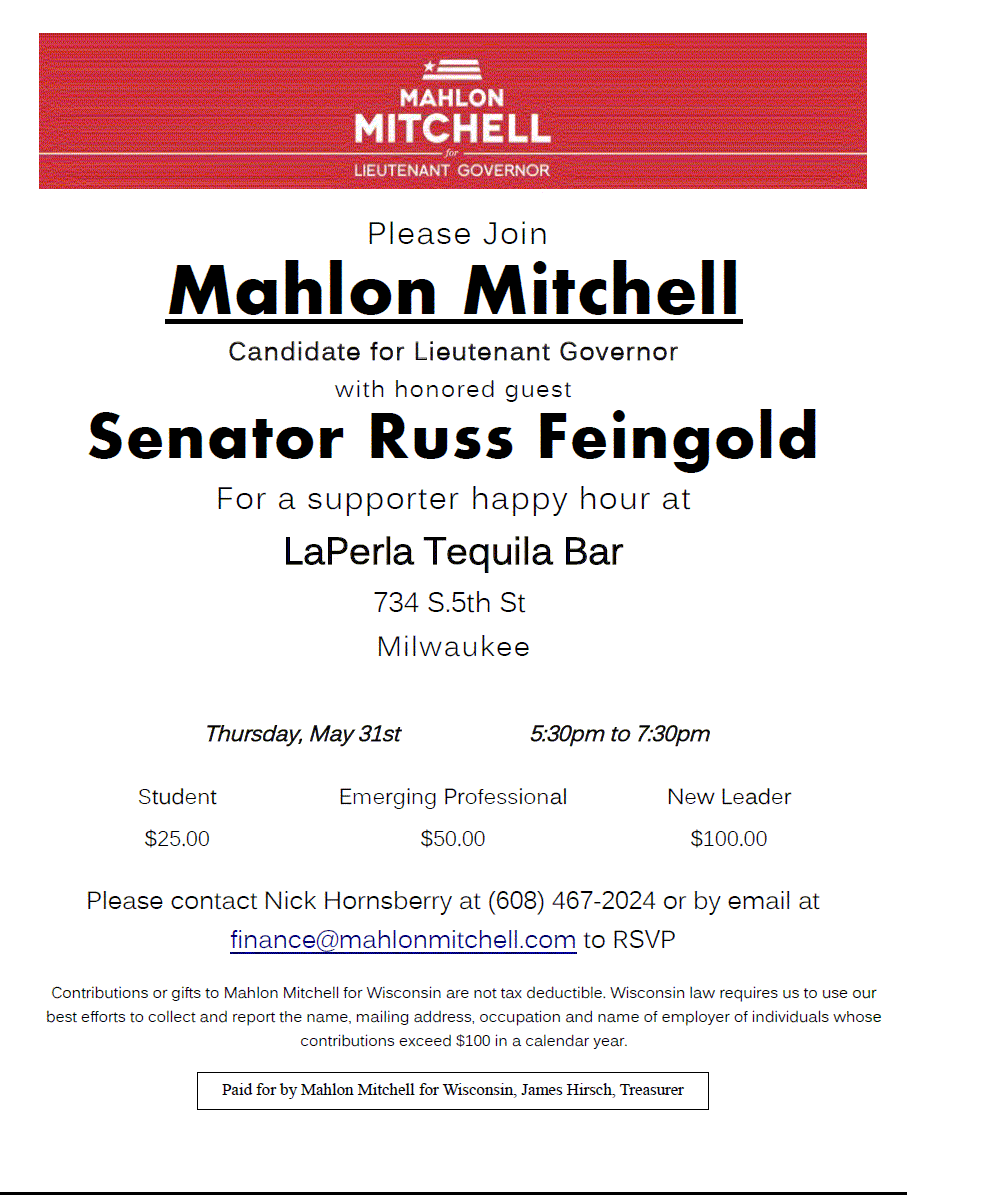In light of record numbers of early voters in Wisconsin ahead of the November 8th Presidential Election, Wisconsin Assembly Speaker Robin Vos declared his concerns around fairness in early voting:
“We’re probably going to have to look at it again to make sure that everybody in the state has the same chance to vote,” said Speaker Robin Vos (R-Rochester).
And I’ll agree with him on that. And he voiced concern about making voting consistent around the state:
Wisconsin hit record early voting Friday in the wake of a federal court order allowing expanded absentee balloting, and the GOP leader of the state Assembly called for restricting the practice to make early voting more uniform across rural and urban areas.
Now in one of the articles I read about Speaker Vos’ concern, he mentioned that the start of early voting was inconsistent from one municipality to another. And I can understand this concern…if Milwaukee starts early voting in late September and it’s neighbor, Wauwatosa doesn’t start until a week or ten days later that can cause confusion. So I wouldn’t oppose some rational consistency across the state for how early, early voting can start.
But the problem is Speaker Vos’ history around early voting. He and the WI GOP tried to use uniform early voting laws to restrict the availability of early voting in urban areas like Madison and Milwaukee and the courts found those laws to be unconstitutional. Things like limited hours and only one early polling place per city for instance. An insane idea in a city the size of Milwaukee for instance. Well here, see for yourself:
In July, U.S. District Court Judge James Peterson in Madison struck down a series of voting limits passed by GOP Gov. Scott Walker and Republican lawmakers. His decision, which is being appealed, flatly rejected claims by Republicans that they were trying to make early voting hours uniform, saying they were attempting to help themselves at the polls.
In July, Peterson ruled the restrictions on early voting were unconstitutional because they intentionally discriminated against minorities. “I reach this conclusion because I am persuaded that this law was specifically targeted to curtail voting in Milwaukee without any other legitimate purpose,” Peterson wrote. “The Legislature’s immediate goal was to achieve a partisan objective, but the means of achieving that objective was to suppress the reliably Democratic vote of Milwaukee’s African-Americans.”
Republicans put limits on early voting in 2011 and further tightened them in 2014. The restrictions limited early voting to weekdays between 8 a.m. and 7 p.m. — thus ending weekend voting that had long been popular among Latinos and African-Americans.
Peterson also found requiring early voting to occur at only one location was unconstitutional because it put a greater burden on voters in Milwaukee and other large cities, where many minorities live. It is much easier for a small town to accommodate voters with a single location than Milwaukee and other urban centers, he wrote.
So I am not confident that Speaker Vos actually has fairness in mind when he says we should revisit early voting. Alhtough I do agree that equal start times could be appropriate, one polling place per city. Hardly! Something along the lines of liquor licenses might make more sense…one polling place per something thousand population…then a small town like Antigo WI can get by with one polling place while Milwaukee might be allowed a dozen…and of course with daily hours and weekend hours to match the local lifestyles.
So let’s by all means revisit it but be careful about the what or how you try to make it fair!



You’re on the right track with approaching it like liquor licenses.
We’ve let the GOP hijack the definition of “uniformity.” It should be uniform from the perspective of the voter, not the municipal clerk. Look at the actual early vote numbers from Milwaukee and work backwards to X-number of polling places (or a combined measure of polling place-hours) per, say, 20,000 residents. Or, set a goal of wait times 30 minutes or less and do what you have to do to hit that. Ideally (fat chance), throw in some state aid to support running the polling places so that’s not an excuse.